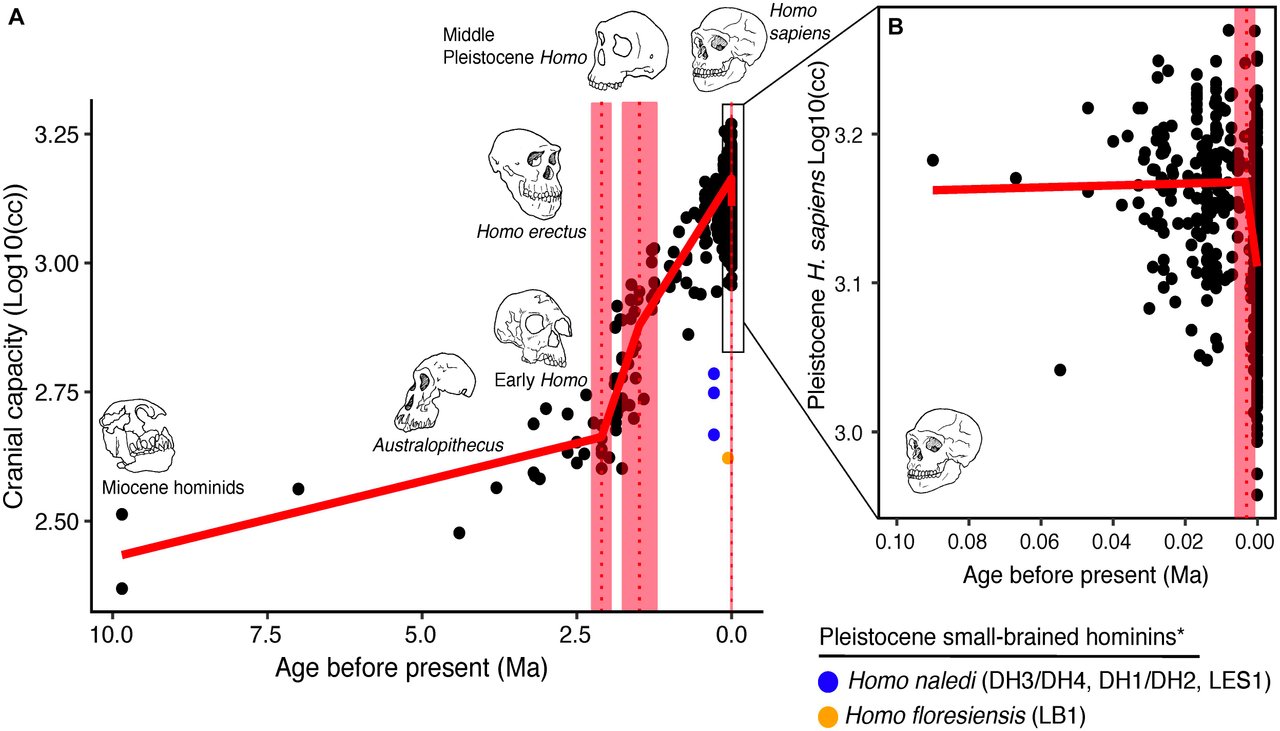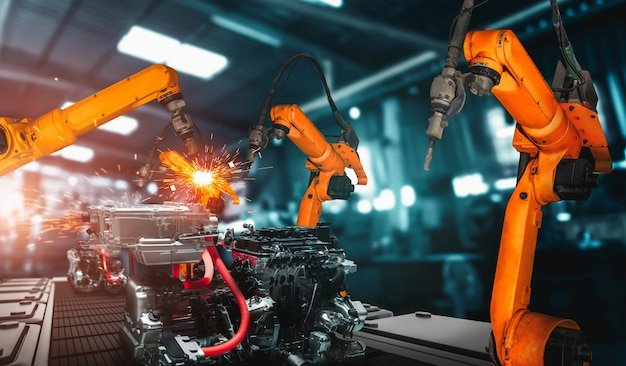Our price of living in community.

Souce
We've known since the mid-20th century that our brains were smaller than in early humans, but a new study has uncovered exactly when that happened, and the finding is surprising and unexpected.

Souce
After Analysis they found that growth in cranial capacity is slow for the first 8 million years and then accelerates to peak and plummet rapidly 3000 years ago.

Souce
Humans and ants despite being very different animals have the greatest similarities in social terms, in both species there are castes, specialization and organization for the good of the community, even the two species practice agriculture.

Souce
Our tools have reached a level of sophistication that thousands of people with very specific knowledge and skills are needed to produce a single consumer object such as a computer. This is possible because it can be said that for more or less 3,000 years we have been able to of outsourcing knowledge in the form of language and writing, and distributing and storing it massively with tools such as the printing press initially and the internet today.

Souce
We do not need to know all those things that the ancient Human had to know, in a primitive environment because each person needed all the necessary knowledge to survive, in the present No.
Thank you for visiting my blog. If you like posts about #science, #planet, #politics, #rights #crypto, #traveling and discovering secrets and beauties of the #universe, feel free to Follow me as these are the topics I write about the most. Have a wonderful day and stay on this great platform :) :)
! The truth will set us free and science is the one that is closest to the truth!
